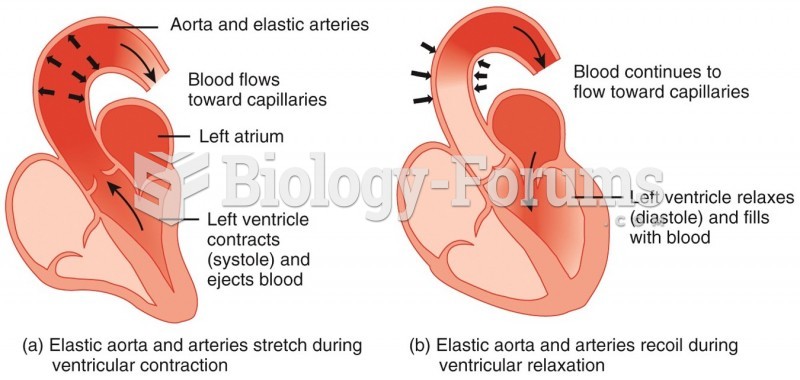|
|
|
More than 150,000 Americans killed by cardiovascular disease are younger than the age of 65 years.
People about to have surgery must tell their health care providers about all supplements they take.
The first monoclonal antibodies were made exclusively from mouse cells. Some are now fully human, which means they are likely to be safer and may be more effective than older monoclonal antibodies.
Most strokes are caused when blood clots move to a blood vessel in the brain and block blood flow to that area. Thrombolytic therapy can be used to dissolve the clot quickly. If given within 3 hours of the first stroke symptoms, this therapy can help limit stroke damage and disability.
Blood in the urine can be a sign of a kidney stone, glomerulonephritis, or other kidney problems.






